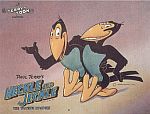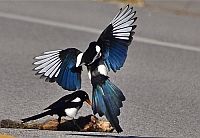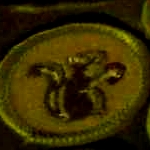Funny, give my mind free rein, like Harry the dog with too much leash, and it’s gone. Mornings like this, it’s the mental equivalent of my old dog Harry stopping to sniff every square of sidewalk. While it’s nice to stop and smell the roses, there is something to be said for just picking one or two and then continuing to walk.
I bet it’s a case of the-other-man’s-mind-is-greener. Were I to corral my thoughts back up and put them strictly to task, which I will do soon enough this morning, I bet they’d adjust to the new circumstances. They would gain some control and direction, but they would lose something that was in abundance while roaming free.
How important is that freedom? It’s easy to wax philosophical— political, really— about the value of freedom, but how many people really just turn their minds loose?
It might feel like closing your eyes while riding a horse bareback, just listening to the animal beneath you, trusting in some other consciousness, and giving it all time to unfold wherever it might take you. This is something everyone should do sometime in their lives, possibly regularly. (See Tara’s Tea & Cookies blog, “The Way the Light Filters Through the Leaves” from just two days ago for a perfect example of how and why to do this.) Choose your own metaphor— leaves to ogle, flowers to sniff, dogs to unleash, horses to turn loose, whatever— but then put that metaphor into real experience. Do it soon.
But what about those “lucky few” who get to do this all the time? Who seem to only know this freeroaming mental state? I suspect there are, for instance, some pure artists, novelists, and screenwriters— since that’s where I’ve been corralling my mind for these past several months— for whom this Zen-like mental freedom is a daily occurrence. For that matter I bet there are ‘pure’ (perhaps this is my euphemism for obsessive and driven) followers of any path out there: scientists, social workers, athletes, lovers, families …
You’ll notice I didn’t include bureaucrats and the like, but that’s a rant for another morning. Let’s just say if you’re going to pursue nirvana on some sort of path, I just hope it’s one that somehow betters the world. I’m certain I’m not being fair here, so world-saving bureaucrats, please speak up and you and I will watch Brazil together to discuss how paper-shuffling can save the world:
Mr. Warrenn: “What is this mess? An empty desk is an efficient desk.”
– Terry Gilliam’s Brazil (1985)
But I digress, which you all must be used to by now. What was I saying about letting my mind off leash?
I expect it will take a different sort of mindset to ponder whether there is such a thing as too much freedom of the mind. As the saying goes: “Keep your mind open, but not so open that your brains fall out.” Perhaps all you thinkers out there can help me ponder this? Comment below if you have the answer. Or a question. Or an even-further digression. In this state of mind, I’m fond of all those things.
Thanks for reading. Cheers,
![]()
Photo of Harry by Boo-Creative several years ago.
 Based on their dining habits, I would have expected something more like a vulture’s repulsive bald red head and a grackle’s screechy dry-heave call. No wonder their cartoonist, Paul Terry, did a significant make-over on the world’s two most famous magpies, Heckle and Jeckle (
Based on their dining habits, I would have expected something more like a vulture’s repulsive bald red head and a grackle’s screechy dry-heave call. No wonder their cartoonist, Paul Terry, did a significant make-over on the world’s two most famous magpies, Heckle and Jeckle ( Really, this is the magpie? I could picture such ditch and dumpster divers making a sound like fingernails upchucking on chalkboard. I envision them in the mismatched Technicolor feathers of a fashion disaster. I imagine an oversized head with turkey neck waggles. I picture them waddling through swamps in a flightless turd-brown hump of a body with gangly blister-red ankles and splayed feet that no manicure could cure. But, no.
Really, this is the magpie? I could picture such ditch and dumpster divers making a sound like fingernails upchucking on chalkboard. I envision them in the mismatched Technicolor feathers of a fashion disaster. I imagine an oversized head with turkey neck waggles. I picture them waddling through swamps in a flightless turd-brown hump of a body with gangly blister-red ankles and splayed feet that no manicure could cure. But, no. In a time of throwing out the old, embracing the new, and charging boldly deeper into the forest, stop for a moment. Think back to what got you here and what you still believe in. That is what you can revere; that is a path you can continue to follow. And while you’re stopped, keep an eye out for squirrels. Now which way was it that you were headed?
In a time of throwing out the old, embracing the new, and charging boldly deeper into the forest, stop for a moment. Think back to what got you here and what you still believe in. That is what you can revere; that is a path you can continue to follow. And while you’re stopped, keep an eye out for squirrels. Now which way was it that you were headed?